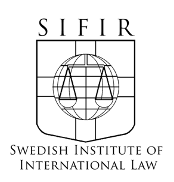Time, Temporalities & Migration Law
International Symposium on the Role and Meaning of Time in Migration Law
Uppsala University // 5-6 September 2024
Keynote speakers
Anuscheh Farahat
Short Bio:
Anuscheh Farahat since March 2024 is Professor of Public Law in European Context at the University of Vienna. Since 2023, she has been a Max Planck Fellow at the Max Planck Institute for Social Anthropology in Halle, where she currently leads a research project titled “JUST MIGRATION: Labour Migration Regimes in Transnationalized Contexts.” Anuscheh Farahat conducts research on issues of national and European constitutional law, national, European, and international migration law, the protection of fundamental and human rights, as well as comparative constitutional law with a particular focus on solidarity conflicts.
Her book Progressive Inclusion: Membership and Participation in Migration Law (Springer Verlag, 2014) was awarded numerous prizes, including the 2015 Herman Mosler Prize from the German Society for International Law. In 2021, her book Transnational Solidarity Conflicts: A Comparative Analysis of Constitutional Court Conflict Resolution in the Euro Crisis was published by Mohr Siebeck. For more information, please visit https://staatsrecht.univie.ac.at/team/farahat-anuscheh/.
Abstract:
Everything everywhere all at once – temporality, temporariness and simultaneity in migration law
In this keynote lecture, I will explore three dimensions of time in migration law: the temporality of migration law, the concept of temporariness in migration law, and the idea of simultaneity as a form of temporality in migration law. I aim to provide a conceptual understanding of temporality and temporariness in migration law, focusing on forms of belonging and the role of simultaneity. My goal is to investigate how a society’s past and future influence citizenship and migration law, as well as the associated concepts of belonging, with a particular emphasis on the dominant trajectories in Europe. I will demonstrate how these perceptions of the past and the future are reflected in the regulatory framework of citizenship and migration law in Europe. At the heart of my exploration lies the question of how citizenship and migration law can better accommodate hybridity, transnational forms of migration, and simultaneous belonging. I will present and justify a specific form of temporality in migration law, namely simultaneity, by examining the practices of transnational migration networks characterized by the constant movement of migrants between their country of origin and their country of residence. Furthermore, I will explore whether the law can allow individuals to be “legally present” in multiple places simultaneously. Lastly, I will investigate how the law acknowledges the simultaneous rootedness of migrants in various societies at the same time.
Shahram Khosravi
Short Bio:
Shahram Khosravi is Professor of Anthropology at Stockholm University. Khosravi has published eight books and many articles on Iran, borders, and migration. The most recent books are Seeing Like a Smuggler (2022) and an artbook The Gaze of the X-ray: An Archive of Violence (2024). Some years ago he started Critical Border Studies, a network for scholars, artists and activists to interact. For more information, please visit https://www.su.se/profiles/shahram-1.185094.
Abstract:
Temporal Bordering
Bordering practices are often studied as spatial relations and the temporalmanifestations of bordering have received much less attention. Bordering practices expose migrants to systematic delays and protracted waiting, that diminishes their chance to participate in the society. Institutionalized delays and waiting result in legal precarity and deskilling in the labor market. In this talk I focus on the implications of weaponizing of time against migrants.
Ayelet Shachar
Short Bio:
Ayelet Shachar (LL.M., J.S.D, Yale Law School) is the R.F. Harney Chair in Ethnic, Immigration and Pluralism Studies at the University of Toronto. From 2015-2020, she was a Scientific Member of the Max Planck Society and Director at the Max Planck Institute for the Study of Religious and Ethnic Diversity.
Professor Shachar has published extensively on topics of citizenship theory, immigration law, highly skilled migration and global inequality, multiculturalism and women’s rights, law and religion in comparative perspective, and the fraught relations between human rights law and territorial conceptions of sovereignty. She is the author of over 100 articles as well as several award-winning books, including Multicultural Jurisdictions: Cultural Differences and Women’s Rights (Cambridge University Press, 2001), The Birthright Lottery: Citizenship and Global Inequality (Harvard University Press, 2009), The Oxford Handbook of Citizenship (Shachar et al., eds., Oxford University Press, 2017); and The Shifting Border: Legal Cartographies of Migration and Mobility (Critical Power Series, Manchester University Press, 2020).
In 2014, Shachar was elected Fellow of the Royal Society of Canada—the highest academic accolade in that country. In 2019, she was awarded the Leibniz Prize, Germany’s most prestigious research award. In 2024, she was awarded the American Political Science Association Migration & Citizenship Career Achievement Award; she is the first female scholar to have received this recognition.
Abstract:
Time and Space in the Governance of Migration
We think of the border as a static line, but recent bordering techniques have broken away from the map. Seeking to appease anti-immigrant sentiments, governments across the globe have introduced increasingly draconian control measures that stretch the border both spatially and temporarily. Bordering activities now take place far away from actual territorial frontiers and migrants are often stopped long before they reach their desired destinations. Today’s highly complex and opaque legal regimes governing mobility lead to the clampdown of the basic rights and protections afforded to those on the move while simultaneously proclaiming adherence to national, regional, and international law standards. In this gap between commitment and action, the rule of law and arbitrariness, the principles of human rights and the vicissitudes of unaccountable power, lies violence and despair. To excavate these harsh realities and reveal potential openings for democratic contestation and claims-making, this keynote lecture will revisit afresh one of the most pressing issues of our times: the transnational movement of peoples across the globe and the increasingly punitive responses – deployed under color of law – to arrest mobility, evade rights, detach borders from fixed territorial markers and impact the temporalities of migration control. After explaining the key causes behind these developments, providing illustrative comparative examples, and cautioning against the attenuation of legality in the process, the discussion will turn to explore what kind of responses may be developed to counter these trends by “re-attaching” rights and protections to persons on the move wherever and whenever they encounter the wrath of the state and the power of its border control authority.
Chairs and Discussants
Karin Borevi, Södertörn University
Karin Borevi is Associate Professor in Political Science and senior lecturer at the Department of Social Sciences at Södertörn University in Sweden. She is also an affiliated researcher and research leader at the Centre for Multidisciplinary Research on Religion and Society (CRS) at Uppsala University. Her research interests include immigration, citizenship, multiculturalism, religious diversity, and the welfare state within three thematic areas: historical analyses of the emergence and development of Swedish policies on immigrant integration; comparative analyses of contemporary European integration and immigration policies; political theoretical debates on multiculturalism, justice, equality, etc. Borevi has analyzed policy developments in the fields of multiculturalism; family migration; refugee settlement and housing; state governance of religious diversity; approaches towards marginalized Roma EU-migrants; border politics, and more. Her current research focuses on attitudes to family migration and on governance of religious diversity within two research projects: (1) Varieties of attitudes to family migration in Europe and (2) Muslims and the Swedish Model: A longitudinal study of state–Muslim civil society relations. Borevi has published in journals like Journal of Social Policies; Identities; International Migration Review; Urban Studies; Comparative Migration Studies, Journal of Muslims in Europe and she has also contributed to many international edited volumes.
Anna-Sara Lind, Uppsala University
Anna-Sara Lind (LL.D.) is Professor of Public Law at the Faculty of Law, Uppsala University. Since 2020, she is scientific leader at Centre for multidisciplinary studies on religion and society. In her research, Lind works with fundamental rights and the law of the welfare state especially in relation to the interplay between national and European law.
Erik Lindberg, Uppsala University
Mattias Martinsson, Uppsala University
Patricia Mindus, Uppsala University
Sofia Näsström, Uppsala University
Martijn Stronks, VU Amsterdam
Martijn Stronks is an Associate Professor at the Amsterdam Centre For Migration and Refugee Law of the Vrije Universiteit in Amsterdam. He has done legal and philosophical research into the relationship between time and migration, is currently working on a project researching the philosophy of the freedom of movement of the tourist compared with the asylum seeker and is preparing a research project into the Human Right to Time. His monograph ‘Grasping Legal Time. Temporality and European Migration Law’, appeared in the Asylum and Migration Studies Series (James Hathaway ed.) of Cambridge University Press in 2022.
Rebecca Thorburn Stern, Uppsala University
Professor of Public International Law. My main research areas include human rights, particularly children’s rights, migration law, and the relationship between international law and domestic law. I am a co-founder of the GL/UMIN network on migration law. From 2022 to 2024, I served as the Research Director for the Uppsala Forum for Democracy, Peace, and Justice. From 2024 to 2027, I am a Visiting Professor of Human Rights at Lund University.
Olof Åslund, Uppsala University

Important dates
Registration opens: 4 June
Registration closes: 14 August







